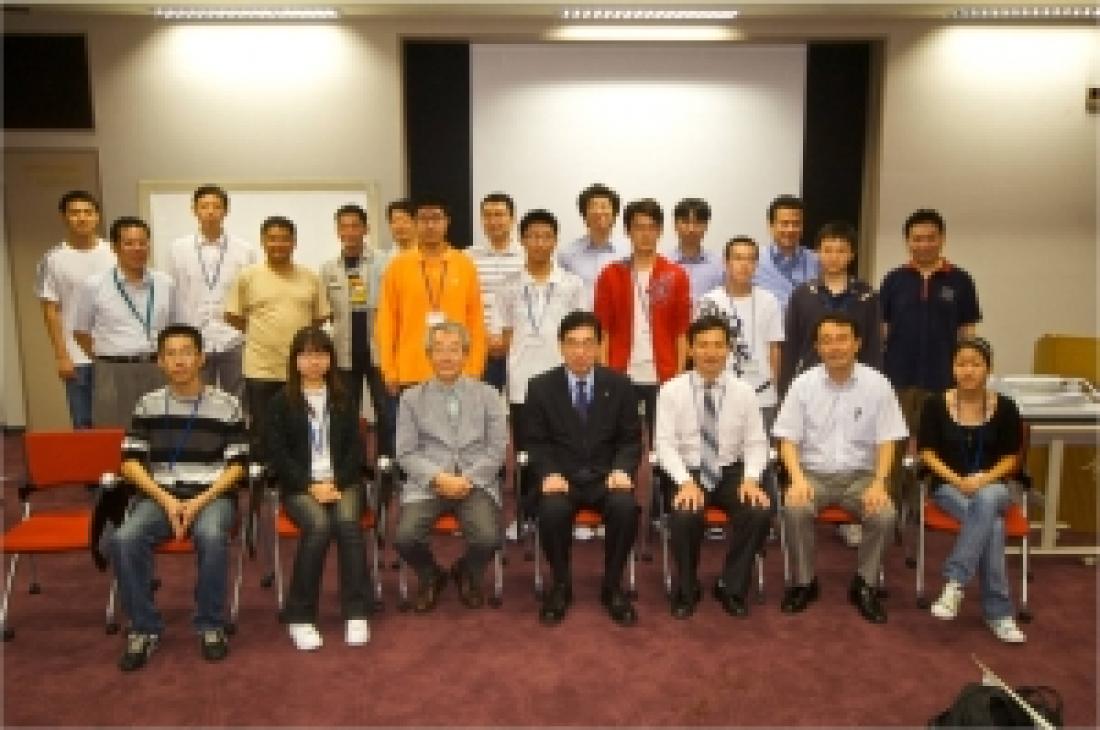Participants of the 2009 Nishina School
Initiated as part of an agreement between RIKEN and China’s Peking University signed in February 2008, the Nishina School offers students a unique opportunity to acquire hands-on experience in theoretical and experimental nuclear physics. Seven final-year Peking University students travelled to Tokyo this year to attend the school.
A total of eight lectures were delivered, covering topics including nuclear theory, data acquisition, particle accelerators and scintillator detectors. The students were also given the opportunity to conduct two experiments, participate in various training sessions, and join a tour of RIKEN’s Rare Isotope Beam Factory.
In a final presentation summarizing the students’ experiences at RIKEN, Peking University student Chen Zhongjing expressed how impressed he was by the research environment. “We may be back here again in the future to do research in nuclear physics,” he predicted.
While the research itself was challenging enough, developing the skills needed to communicate the results of experiments was also a learning experience. “For most of us, this is the first time to explain physics in English,” said Zhongjing.
Haiwang Yu, another Peking University student, praised RIKEN’s research equipment. “Most of the instruments at our university are designed for teaching, not for research,” he said. “At the Nishina School, we start with instruments used in real research, so we learn what research is really like.”
One of the most popular components of this year’s school was a game surrounding an experiment on positron emission tomography (PET). In analogy to the use of PET in cancer imaging, teams took turns using coincidence measurements from a circle of scintillator detectors to find a gamma-ray source (the ‘tumor’) hidden under one of many paper cups placed by the opposing team.
Melissa Furukawa, an undergraduate student at McMaster University in Canada who attended the Nishina School as a guest, was on the team who won the game. “Doing these kinds of experiments really helps you to understand how the detectors work,” she said.
Aside from lectures and experiments, students also spent their weekends visiting landmarks around Tokyo and learning about various Japanese traditions. A ceremony in the evening of October 8 brought this year’s Nishina School to a close.



